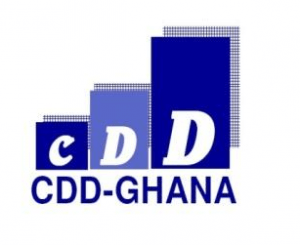Parliamentary elections based on personal resources – study
 Eighty-four per cent of Ghanaian voters said their voting decisions, to a large extent, were influenced by the candidate’s ability to use personal resources to help other people, a study has revealed.
Eighty-four per cent of Ghanaian voters said their voting decisions, to a large extent, were influenced by the candidate’s ability to use personal resources to help other people, a study has revealed.
The study, published by the Centre for Democratic Development (CDD) Ghana, also found that the respondents also attributed their voting decision to the candidate’s ability to provide development projects in the constituency.
“These findings show that voters’ voting intent is not based on the competence of the candidate to perform the core mandate of Members of Parliament, but the ability of the MPs to provide development projects to the constituents,” it said.
The study, dubbed: “No poor Policy Brief: A Study of Voter Expectations of MPs in Ghanaian Constituencies with High Incidence of Poverty,” was launched in Accra by Alhaji Mohammed Mubarak Muntaka, the Majority Chief Whip of Parliament.
It is part of the “The No poor Project: Enhancing Knowledge for Renewed Policies against Poverty,” from 2012 to 2017 and is being implemented in Ghana, Senegal, South Africa and Madagascar, among other countries.
The study was carried out in November 2012, ahead of the 2012 general election in 10 constituencies including Agona East, Central; Odododiodio, Akwatia, Evalue-Gwira, Tain, Bunkpurugu, Builsa and Lawra.
The policy brief examines expectations, preferences and behaviour of Ghanaian voters towards their MPs during elections.
The study revealed that 44 per cent of Ghanaian voters were very much interested in public affairs, with 59 per cent actively participating in community meetings.
According to the study, in spite of the active nature of Ghanaian adults in public affairs, Ghanaians appeared to have very limited knowledge and understanding of the core functions and responsibilities of MPs.
The study, therefore, recommended that the National Commission for Civic Education and civil society organisations appreciate the role of MPs, issues on elections and accountability and above all the civic and political rights of citizens.
Alhaji Muntaka commended CDD Ghana for coming out with the research findings.
He said what was alarming in the report was the whopping 28 per cent of Ghanaian voters who thought that that their MPs had a responsibility to directly support individuals monetarily for instance in paying loans, school fees and giving gifts.
He said due to such demands by constituents on the MPs, experienced hands often opted out of parliamentary elections.
He said so far only two MPs who entered Parliament in 1993 were still serving while those for 1997 were 10.
Madam Regina Tetteh, the Senior Programme Officer, CDD-Ghana, who gave an overview of the study, described the project as timely as Ghana prepares for another crucial election on November 7.
She said it was important that key stakeholders get access to this feedback from voters in order to develop educational materials to sensitise them.
Professor Emmanuel Gyimah-Boadi, the Executive Director of CDD-Ghana, said the findings would provide policy makers and relevant stakeholders with a broad understanding of poverty and foster the development of new policies for addressing poverty.
Source: GNA
